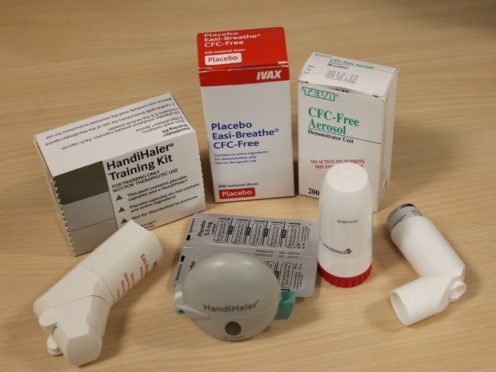Patients with respiratory diseases and arthritis could struggle to manage their conditions because their inhalers are too fiddly for them to use, researchers say.
A team from the University of Bath’s Department of Pharmacy and Pharmacology say NHS staff should check that such patients can use their inhalers properly to reduce the risk of them being unable to take the medicine.
Respiratory diseases, including asthma or chronic obstructive pulmonary disease (COPD) are common in people with rheumatoid arthritis, with an estimated 60,000 people in the UK having both conditions.
In a study, 34 patients with rheumatoid arthritis, and a healthy control group, used four types of commonly prescribed inhalers.
Only 15% of the arthritis patients could complete all of the steps to use one type of inhaler, called a HandiHaler, compared to 94% of the control group.
In contrast, 85% of the arthritis patients and 100% of the control group could correctly use an inhaler called a Turbohaler.
The study, published in the journal Respiratory Medicine, found the arthritis group also struggled to complete the steps required for two other commonly prescribed inhalers in comparison to the control group.
Dr Matthew Jones, from the University of Bath, said: “These results show how important it is that health professionals make sure people can use any inhaler they prescribe.
“If someone gets home from a pharmacy with a new inhaler and finds they can’t use it, their lung disease will not be properly treated and the NHS loses money, as some inhalers cost more than £50 each.
“This simple training makes a real difference to how these patients can manage their respiratory disease. The consequences of not being able to physically operate an inhaler can be severe for patients, as badly treated asthma can be fatal.
“Pharmacists, doctors and nurses need to make these easy checks not only help patients achieve better outcomes but also reduce demand on the NHS, not to mention taking away the stress and irritation of a complex and difficult process for the patient. It’s a no-brainer.”
In the year to November 2017, 4.5 million HandiHalers were dispensed by the NHS in England to approximately 375,000 people at a cost of £135 million, the researchers said.
Undergraduate pharmacy student Yasmin Shirmanesh, who also conducted the study, said: “Some of these inhalers are prescribed by the millions around the UK, so I was shocked to see the difference in how difficult patients find some types to use.”
The study was funded through the Bath Institute for Rheumatic Diseases.
